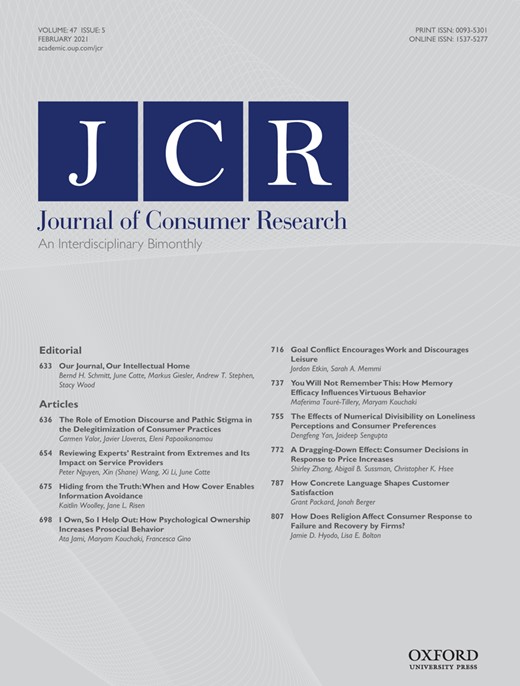-
Views
-
Cite
Cite
Dengfeng Yan, Jaideep Sengupta, The Effects of Numerical Divisibility on Loneliness Perceptions and Consumer Preferences, Journal of Consumer Research, Volume 47, Issue 5, February 2021, Pages 755–771, https://doi.org/10.1093/jcr/ucaa026
Close - Share Icon Share
Abstract
This research seeks to examine, first, whether and why consumers perceive divisible versus indivisible numbers differently and, second, how such divergent perceptions influence consumer preferences for marketer-created entities associated with divisible versus indivisible numbers. Integrating insights from two different literatures—numerical cognition and loneliness—we propose and find that numbers perceived to be divisible (vs. indivisible) are viewed as having more “connections” and are therefore deemed to be less lonely. Building on these findings and the literature on compensatory consumption, we then propose and demonstrate that a temporary feeling of loneliness increases participants’ relative preference for various targets—products, attributes, and prices—associated with divisible (vs. indivisible) numbers, which are perceived to be relatively more connected and less lonely. It merits mention that our findings are triangulated across a wide variety of numbers, different product categories, and multiple operationalizations of loneliness.



